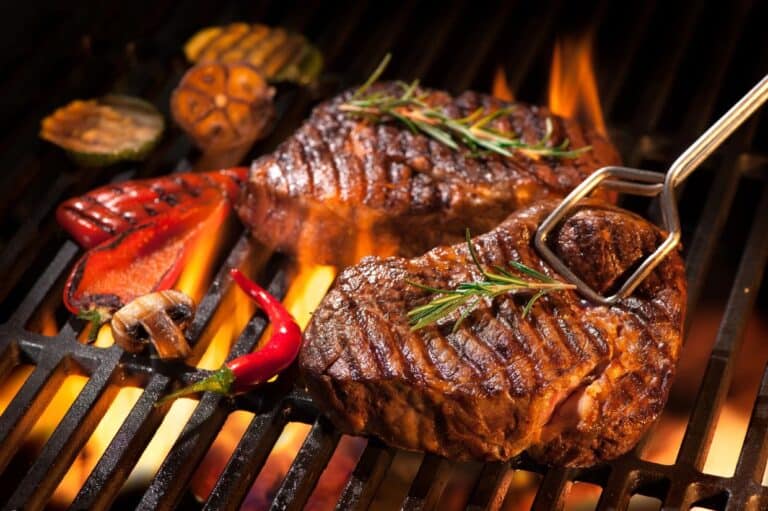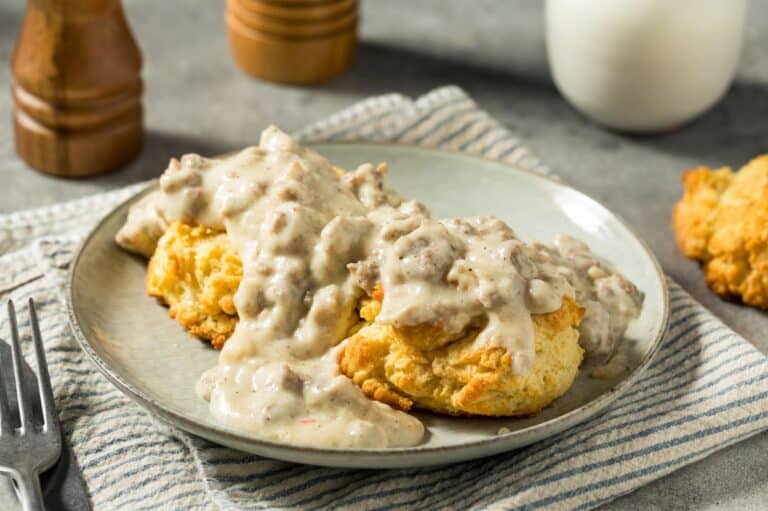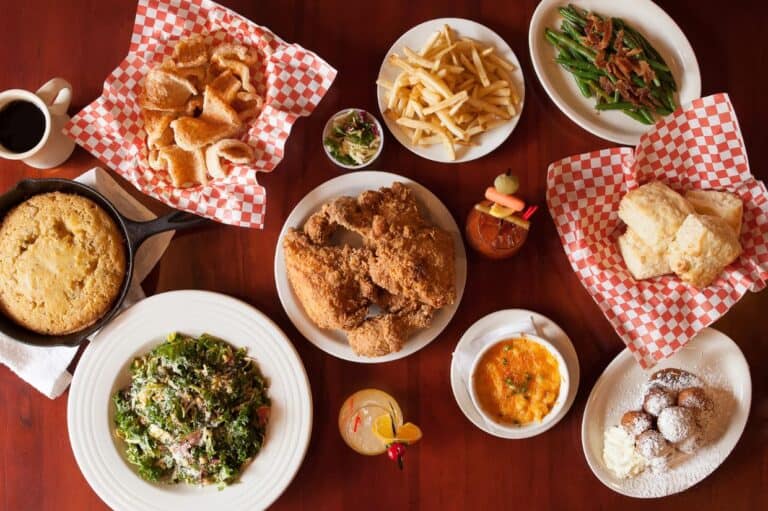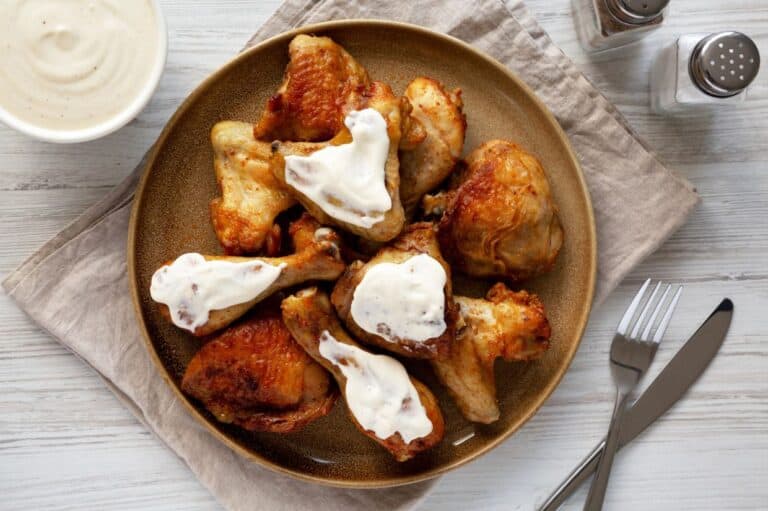Southern food isn’t just about what’s on the plate; it’s about who’s sitting around the table. In the South, food is deeply connected with community in a way that goes beyond simple meals. It’s about gathering, sharing, celebrating and sometimes even mourning together. The cuisine itself reflects this — with recipes passed down through generations, potluck-style meals that feed the whole neighborhood and dishes made to comfort the soul as much as they nourish the body. Read on to learn how community plays such a huge role in shaping Southern food culture.
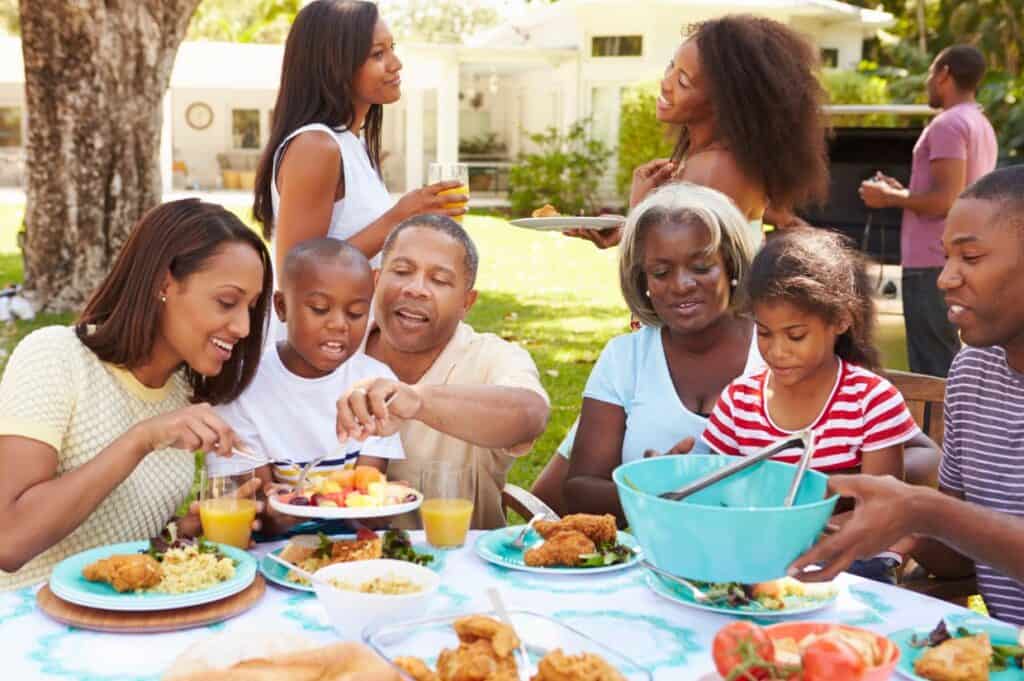
It’s all about gathering
If there’s one thing you quickly learn about the South, it’s that food is rarely enjoyed alone. Family dinners, church picnics and neighborhood barbecues are essential to Southern life. Food brings people together, whether it’s a casual get-together or a more formal occasion. In many ways, the food becomes a symbol of connection. Sharing a meal is about sharing time, space and stories.
Think about Sunday suppers, where extended families come together for a big, hearty meal. It’s not just about the fried chicken, biscuits or sweet tea. It’s about catching up on the week, laughing over shared memories and making new ones. The food is the excuse to gather, but it’s the togetherness that matters most.
Potlucks and the power of sharing
Potluck is one of the best examples of community in Southern food culture. The potluck is a Southern staple, where everyone brings a dish, and the table reflects the people in the room. You get a little bit of everything: Miss Betty’s famous mac and cheese, Uncle Joe’s secret-recipe ribs and the banana pudding that’s always a hit. Each dish tells a story, and in many cases, families pass down the recipes through generations.
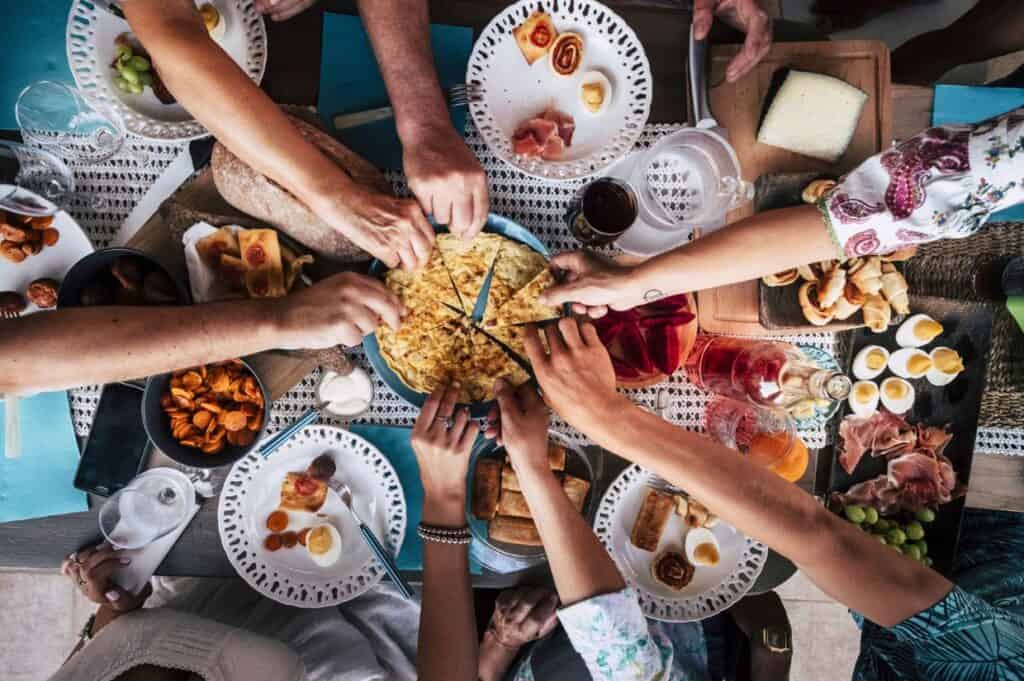
What’s so special about a potluck is it reflects the community spirit. Everyone contributes, and everyone enjoys the fruits of each other’s labor. It’s about giving and receiving, sharing what you have, and appreciating the hard work others have put into their dishes. It symbolizes what Southern food culture is all about — collaboration, connection and the simple act of enjoying good food with good people.
Traditions that bond
Southern food traditions have deep roots, often tied to family, faith and community events. Think about church picnics or annual fish fries that have been going on for decades. These traditions are more than just events; they’re touchstones for the community. It’s where people come together, sometimes year after year, to celebrate, reminisce and create new memories. Food is central to these traditions — from the homemade casseroles on picnic tables to the fried catfish sizzling away in big outdoor fryers.
In some communities, food traditions are tied to specific times of the year, like crawfish boils in the spring or oyster roasts in the fall. These seasonal celebrations are as much about the people as they are about the food. Folks gather around big tables or outdoor pits, peeling crawfish or shucking oysters while swapping stories and enjoying each other’s company. It’s messy, hands on and fun — a reminder that food is meant to be enjoyed with others.
Passing down recipes — and stories
One of the most beautiful aspects of Southern food culture is how recipes are passed down from generation to generation. There’s something special about learning how to make your grandmother’s cornbread or your aunt’s pecan pie. These recipes are more than just lists of ingredients and instructions — they’re pieces of family history, filled with memories of holiday meals, family reunions or everyday dinners around the kitchen table.
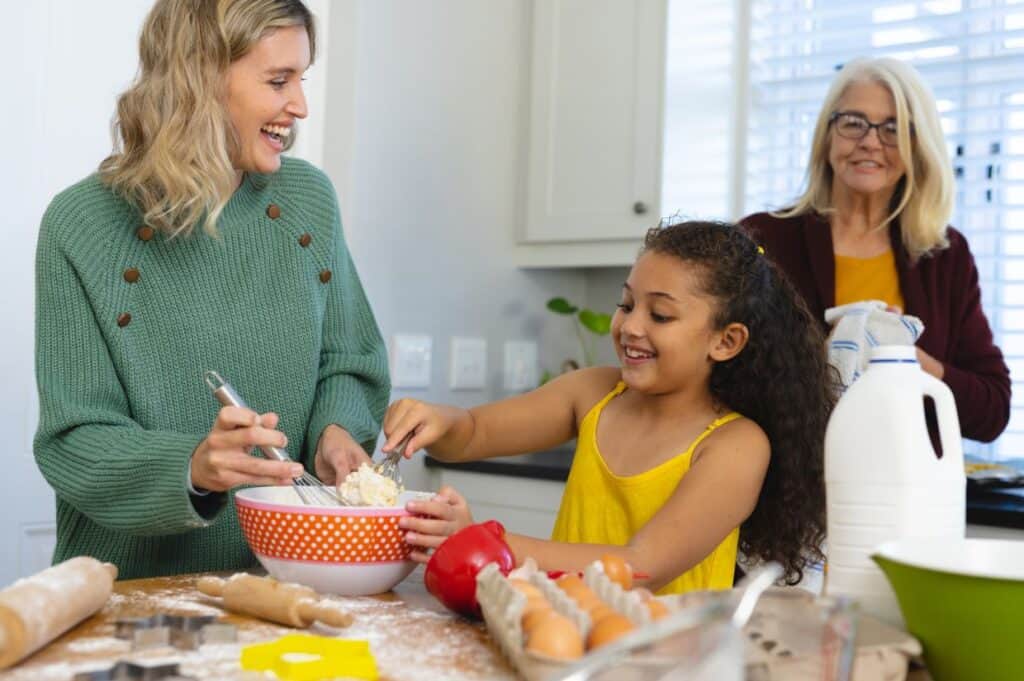
In many Southern families, recipes aren’t written down but are taught through experience. You learn by watching, by tasting and by doing. It’s a tradition that ties the past to the present and ensures that these family dishes continue to be a part of the future. And every time you make that dish, you’re reminded of the people who taught you, the stories they told and the love they shared.
Food as comfort and support
Food is also a way of supporting one another in the South, especially in difficult times. It’s common for neighbors and friends to bring over a casserole or a pie when someone is going through a tough time, whether it’s the loss of a loved one, an illness or another hardship. There’s a term for this: “Taking a dish.” It’s a simple gesture that says, “I’m here for you,” without saying a word.
Food can offer comfort in a way that few other things can. A warm bowl of chicken and dumplings, a slice of homemade pound cake or a pot of slow-cooked beans can provide not just nourishment, but also emotional support. In this way, food becomes a way of caring for one another, of showing love and compassion when words might fall short.
Food and faith
Food and faith are deeply connected with people in the South. Church events, from Sunday brunches to holiday feasts, often center around food. Breaking bread together remains a biblical tradition, allowing people to come together in faith and fellowship. Whether it’s a potluck at the church hall or a family gathering after Sunday service, food is a way to strengthen community ties and build deeper relationships.
The connection between food and faith is also seen in how many Southern dishes are prepared with care and intention. There’s a certain reverence for making food that will be shared with others, especially when it’s tied to a special occasion or religious holiday. It’s not just about feeding the body; it’s about nourishing the soul and bringing people closer together.
It’s more than just food
When you take a closer look at Southern food culture, you realize it’s not just about the flavors or the ingredients — it’s about the people. Community is at the heart of every dish, every recipe and every meal shared. Whether it’s a big family gathering, a neighborhood cookout or a church potluck, food is the thread that weaves people together in the South. It’s more than just feeding the body; it’s about feeding the spirit, the soul and the bonds that tie us to one another. In the end, that’s what makes Southern food so special — it’s a celebration of community, love and togetherness.
